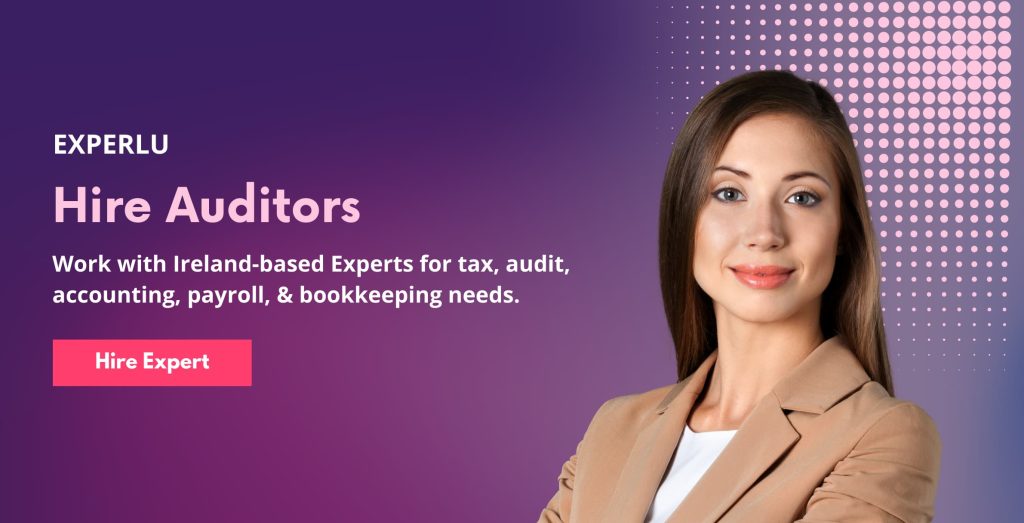Any new hiring that proves wrong can have multiple repercussions for you and your business. The consequences become even more severe if you hire an internal auditor because they deal with sensitive financial information.
If you are wondering what good questions to ask an internal auditor, we will discuss them here.
Table of Content
What does an internal auditor do?
Internal auditors oversee an organisation’s risk management, governance, and internal control mechanisms. Their primary duty involves detecting and rectifying any issues they uncover to prevent complications during an external audit conducted by government authorities.

The projected annual salary for an Internal Auditor in the capital of Ireland is approximately €61,000.
7 Questions for Internal Auditor
1. Provide an overview of your auditing experience
Starting with this question allows the candidate to highlight their experience in auditing. This allows you, as an interviewer, to assess the candidate’s depth of experience and expertise in auditing.
It helps you understand whether the candidate has worked on a wide range of audit projects or specialised in specific areas, which can be crucial for fitting into the organisation’s needs.
2. Why did you apply for this position?
This is a classic question for any role, and internal auditing is no exception. By asking about internal audits, the interviewer wants to check if you know things about both the company and the specific role you’re applying for.
This helps them see how much research and prep you did before the interview, which shows how interested and committed you are to the job.
3. Why are internal audits necessary?
This is a common question in internal audit interviews. Firstly, it helps gauge the candidate’s understanding of the fundamental role of internal audits within organisations.
Such questions provide insight into the candidate’s ability to articulate complex concepts clearly and concisely. Communication is essential for internal auditors since they always share their findings and suggestions with different people inside the company.
4. What steps do you follow for internal auditing?
It tests their understanding of the auditing process. A proficient Internal Auditor should also focus on solidifying the audit team’s authority to enhance collaboration with auditees.
They must assess which departments necessitate internal audits and determine the appropriate frequency. Moreover, they should develop and disseminate an annual audit schedule, ensuring adherence to governmental regulations and internal protocols.
5. What is the most complex auditing you have managed?
This question helps you assess the candidate’s problem-solving skills and how they deal with stressful situations.
By asking about the most complex audit a candidate has managed, you prompt them to reflect on their past experiences and articulate how they approached and resolved complex issues.
6. How would you react if someone asked you to cover a fraud?
These internal auditor interview questions aim to test an individual’s ethical integrity. Candidates are supposed to make wise decisions when dealing with ethical dilemmas. How they answer this question shows if they can tell right from wrong and are willing to stick to their values, even when things get tough.
7. Do you know about audit software?
Today, it is important for internal auditors to stay abreast with the latest technology, and this type of question will help you gauge that. These questions show their ability to leverage technology to enhance audit effectiveness and efficiency. Some of the audit software used in Ireland are Trullion, Datasnipper, Hyperproof, and many more.
What skills does a good auditor possess?
To see whether the potential candidate is a good fit, look for these skills:
- Technical knowledge
To excel in an auditor position, you must understand accounting principles, financial reporting guidelines, and auditing frameworks. This will allow you to conduct thorough audits and be well-versed in the challenges involved in financial statement analysis.
- Attention to detail
Auditors must be super detail-oriented since even tiny discrepancies could indicate more significant problems with an organisation’s accounting records. Paying close attention to everything is a must!
- Analytical thinking
Critical and analytical thinking are essential for auditors to make sense of complicated data and spot potential anomalies or fraudulent activity.
- Flexibility
Adaptability and flexibility are vital skills for an excellent internal auditor. They should be willing to change with the changing environment and stay up-to-date with the latest technology, laws, and other guidelines.

Conclusion
Now, you have the list of seven best questions for internal auditors. These questions test diverse aspects like professionalism, eye for detail, ethical standards, etc. Also, the insights you gain from their responses will help you make the best decision.
However, remember that even though these questions cover the basics, they can include many more. Hiring the right internal auditor significantly boosts financial transparency, integrity, and compliance within the company. So, exercising diligence would always be rewarding.




Leave a Reply